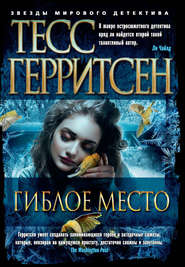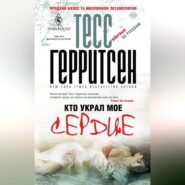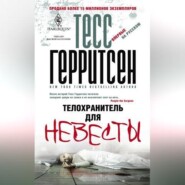По всем вопросам обращайтесь на: info@litportal.ru
(©) 2003-2024.
✖
Never Say Die
Автор
Год написания книги
2019
Настройки чтения
Размер шрифта
Высота строк
Поля
“Gonna be a hard landing anyhow,” said Maitland, taking stock of the velvety green ridges on either side of them. The valley was narrow; he’d have to swoop in fast and low. It was a hellishly short landing strip, nothing but a pin scratch in the jungle, and there was always the chance of an unreported gun emplacement. But the orders were to drop the Lao VIP, whoever he was, just inside North Viet-namese territory. No return pickup had been scheduled; it sounded to Maitland like a one-way trip to oblivion.
“Heading down in a minute,” he called over his shoulder to Valdez. “Get the passenger ready. He’s gonna have to hit the ground running.”
“He says that crate goes with him.”
“What? I didn’t hear anything about a crate.”
“They loaded it on at the last minute. Right after we took on supplies for Nam Tha. Pretty heavy sucker. I might need some help.”
Kozlowski resignedly unbuckled his seatbelt. “Okay,” he said with a sigh. “But remember, I don’t get paid for kickin’ crates.”
Maitland laughed. “What the hell do you get paid for?”
“Oh, lots of things,” Kozlowski said lazily, ducking past Valdez and through the cockpit door. “Eatin’. Sleepin’. Tellin’ dirty jokes—”
His last words were cut off by a deafening blast that shattered Maitland’s eardrums. The explosion sent Kozlowski—or what was left of Kozlowski—flying backward into the cockpit. Blood spattered the control panel, obscuring the altimeter dial. But Maitland didn’t need the altimeter to tell him they were going down fast.
“Kozy!” screamed Valdez, staring down at the remains of the copilot. “Kozy!”
His words were almost lost in the howling maelstrom of wind. The DeHavilland shuddered, a wounded bird fighting to stay aloft. Maitland, wrestling with the controls, knew immediately that he’d lost hydraulics. The best he could hope for was a belly flop on the jungle canopy.
He glanced back to survey the damage and saw, through a swirling cloud of debris, the bloodied body of the Lao passenger, thrown against the crates. He also saw sunlight shining through oddly twisted steel, glimpsed blue sky and clouds where the cargo door should have been. What the hell? Had the blast come from inside the plane?
He screamed to Valdez, “Bail out!”
The cargo kicker didn’t respond; he was still staring in horror at Kozlowski.
Maitland gave him a shove. “Get the hell out of here!”
Valdez at last reacted. He stumbled out of the cockpit and into the morass of broken crates and rent metal. At the gaping cargo door he paused. “Maitland?” he yelled over the wind’s shriek.
Their gazes met, and in that split second, they knew. They both knew. It was the last time they’d see each other alive.
“I’ll be out!” Maitland shouted. “Go!”
Valdez backed up a few steps. Then he launched himself out the cargo door.
Maitland didn’t glance back to see if Valdez’s parachute had opened; he had other things to worry about.
The plane was sputtering into a dive.
Even as he reached for his harness release, he knew his luck had run out. He had neither the time nor the altitude to struggle into his parachute. He’d never believed in wearing one anyway. Strapping it on was like admitting you didn’t trust your skill as a pilot, and Maitland knew—everyone knew—that he was the best.
Calmly he refastened his harness and grasped the controls. Through the shattered cockpit window he watched the jungle floor, lush and green and heartwrenchingly beautiful, swoop up to meet him. Somehow he’d always known it would end this way: the wind whistling through his crippled plane, the ground rushing toward him, his hands gripping the controls. This time he wouldn’t be walking away…
It was startling, this sudden recognition of his own mortality. An astonishing thought. I’m going to die.
And astonishment was exactly what he felt as the DeHavilland sliced into the treetops.
Vientiane, Laos
AT 1900 HOURS THE REPORT came in that Air America Flight 5078 had vanished.
In the Operations Room of the U.S. Army Liaison, Colonel Joseph Kistner and his colleagues from Central and Defense Intelligence greeted the news with shocked silence. Had their operation, so carefully conceived, so vital to U.S. interests, met with disaster?
Colonel Kistner immediately demanded confirmation.
The command at Air America provided the details. Flight 5078, due in Nam Tha at 1500 hours, had never arrived. A search of the presumed flight path—carried on until darkness intervened—had revealed no sign of wreckage. But flak had been reported heavy near the border, and .57-millimeter gun emplacements were noted just out of Muong Sam. To make things worse, the terrain was mountainous, the weather unpredictable and the number of alternative nonhostile landing strips limited.
It was a reasonable assumption that Flight 5078 had been shot down.
Grim acceptance settled on the faces of the men gathered around the table. Their brightest hope had just perished aboard a doomed plane. They looked at Kistner and awaited his decision.
“Resume the search at daybreak,” he said.
“That’d be throwing away live men after dead,” said the CIA officer. “Come on, gentlemen. We all know that crew’s gone.”
Cold-blooded bastard, thought Kistner. But as always, he was right. The colonel gathered together his papers and rose to his feet. “It’s not the men we’re searching for,” he said. “It’s the wreckage. I want it located.”
“And then what?”
Kistner snapped his briefcase shut. “We melt it.”
The CIA officer nodded in agreement. No one argued the point. The operation had met with disaster. There was nothing more to be done.
Except destroy the evidence.
Chapter One
Present
Bangkok, Thailand
GENERAL JOE KISTNER did not sweat, a fact that utterly amazed Willy Jane Maitland, since she herself seemed to be sweating through her sensible cotton underwear, through her sleeveless chambray blouse, all the way through her wrinkled twill skirt. Kistner looked like the sort of man who ought to be sweating rivers in this heat. He had a fiercely ruddy complexion, bulldog jowls, a nose marbled with spidery red veins, and a neck so thick, it strained to burst free of his crisp military collar. Every inch the blunt, straight-talking, tough old soldier, she thought. Except for the eyes. They’re uneasy. Evasive.
Those eyes, a pale, chilling blue, were now gazing across the veranda. In the distance the lush Thai hills seemed to steam in the afternoon heat. “You’re on a fool’s errand, Miss Maitland,” he said. “It’s been twenty years. Surely you agree your father is dead.”
“My mother’s never accepted it. She needs a body to bury, General.”
Kistner sighed. “Of course. The wives. It’s always the wives. There were so many widows, one tends to forget—”
“She hasn’t forgotten.”
“I’m not sure what I can tell you. What I ought to tell you.” He turned to her, his pale eyes targeting her face. “And really, Miss Maitland, what purpose does this serve? Except to satisfy your curiosity?”
That irritated her. It made her mission seem trivial, and there were few things Willy resented more than being made to feel insignificant. Especially by a puffed up, flat-topped warmonger. Rank didn’t impress her, certainly not after all the military stuffed shirts she’d met in the past few months. They’d all expressed their sympathy, told her they couldn’t help her and proceeded to brush off her questions. But Willy wasn’t a woman to be stonewalled. She’d chip away at their silence until they’d either answer her or kick her out.
Lately, it seemed, she’d been kicked out of quite a few offices.

















